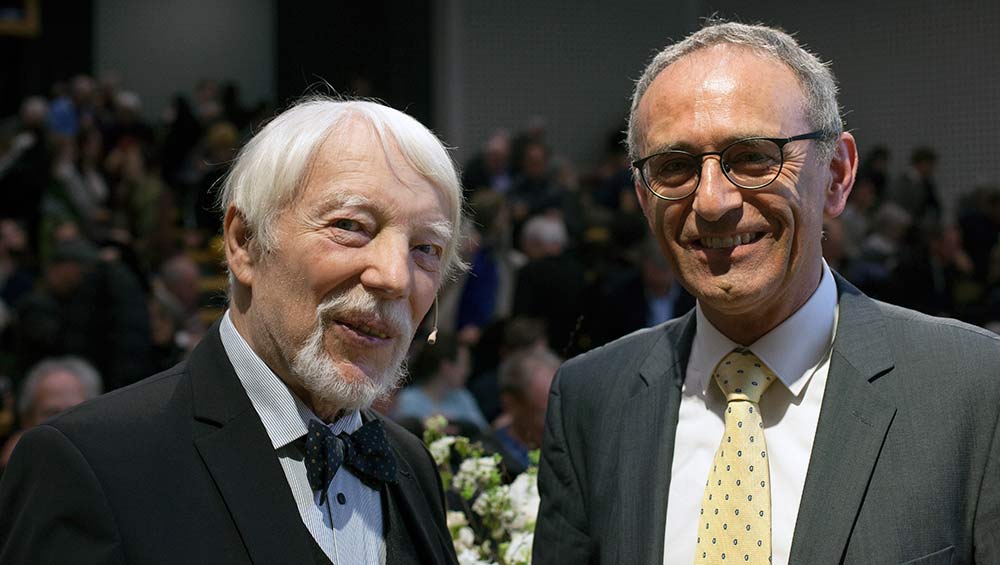Modern Lessons from the Ancient World
The turn-out was huge, with far more people than seats in the lecture hall at Rämistrasse 69. An alternative was quickly found, and the several hundred guests made their way to the University’s main building. This mass movement of people was quite fitting for an event on the theme of migration.
The internationally renowned Egyptologist and cultural studies scholar Jan Assmann devoted his opening lecture to one of the oldest and most powerful stories ever recorded: The Bible story of the Exodus. The story of how God led the people of Israel out of Egypt and freed them from slavery also paints an enthralling and vivid picture of a profound spiritual revolution: The founding of monotheism.
Respect not revenge
Assmann took his audience back to ancient Egypt on the trail of the Exodus story – and then fast-forwarded to the present day with our migration debates and identity conflicts.
The story of the escape from Egypt, he said, was a long-distance representation of a cultural conflict between Egypt and the Israelites. “The great thing about the Torah is that it doesn’t express this conflict in terms of triumph and revenge, but as an unparalleled learning process,” he said. The Torah defines Israel as a reflective and therefore empathic society. “From the experience of enslavement in Egypt, the Israelites learned to treat strangers and weaker members of society with respect.”
Escape across the water
The incredible escape of the Israelites across the Red Sea is one of the dramatic high points of the Exodus narrative. Moses, the story goes, parted the waves by raising his staff so that his people could escape the clutches of the Pharaoh’s soldiers.
Nowadays, migrants from Africa and the Middle East attempt to cross the Mediterranean sea to get to Europe. In Europe, opinion is divided about how to deal with migration. European identity is under debate once again, and it is almost inevitable that we look back at historical experiences, and of course to antiquity as the “cradle of Western culture”. Soon enough – often too hastily – someone brings up the fall of the Roman Empire under the influx of the Barbarians.
Uncannily Topical
Greek studies scholar Christoph Riedweg, in his talk at the opening of the Zurich Center for the Study of the Ancient World (ZAZH), spoke in this regard of the “uncanny topicality of antiquity.” As our “nearest stranger”, the ancient world served as an important point of orientation in a time of massive upheaval, he said. But with that grew the danger that history would be used as a tool without the proper factual knowledge.
A major aim of the Zurich Center for the Study of the Ancient World was therefore to bring an academic perspective on antiquity to the public debate about current societal issues. “By considering both the similarities and the differences, the analysis of ancient history can help to orient us in the present,” said Riedweg.
Milestone in the history of UZH
At the opening ceremony, Deputy President Gabriele Siegert highlighted the significance of classical studies for UZH. The establishment of the new Center of Competence for the Study of the Ancient World was a “milestone” in UZH’s history, and would mean that the many disciplines involved – including history, ancient philology, theology, law, archaeology and Asian and Oriental Studies – would be better able to harness their potential in the future. Through the ZAZH, research and teaching activities could transcend the traditional subject boundaries, boosting the position of UZH as a leading international research hub for Mediterranean antiquity.
Finally, Andreas Victor Walser, assistant professor of history of ancient cultures, gave a preview of the Ringvorlesung program in the series Migration in Antiquity. “We have to carefully consider the particular characteristics of the ancient world before drawing parallels with the present,” he said.
